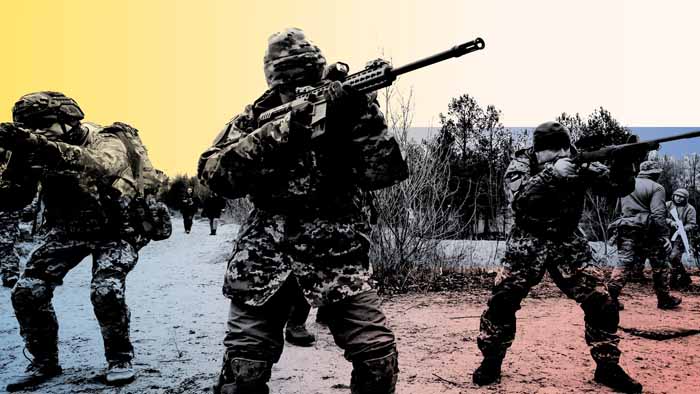The reverberations of the ongoing war between Russia and Ukraine are felt across the world. But, for Africa, a continent just beginning to emerge from the economic disruptions caused by Covid-19, the repercussions could be more disastrous.
Experts say that the biggest impact of a long drawn out war will be on Africa’s food security. Food insecurity could rattle the very foundations of political, economic and social security of a country. International retaliation on Russia by way of economic sanctions has shaken global supply chains. Russia and the Ukraine are the major suppliers of wheat, maize and sunflower oil to Africa and the war has already disrupted their supplies. The countries most vulnerable to the shortage due to their excessive dependence on Russia and Ukraine are Egypt, Tunisia, Nigeria, Ghana, Kenya etc. According to an Egyptian news platform, Egypt depends on Russia and Ukraine for 70% of its wheat and the government relies on imported wheat to subsidize bread for poor families. Egypt’s food security and political stability are closely interlinked. In fact, expensive bread was one of the reasons for the uprising in the country in 2011. However, some countries in Africa like South Africa, Namibia, Mozambique, and Zimbabwe that produce wheat may benefit from the food grain shortage.
African economists sound the alarm over a catastrophic fall of African trade. The war has taken a heavy toll on both imports and exports. The exclusion of Russian banks from SWIFT will make it riskier and more expensive for African exporters and importers. For instance, Kenya exports annually $87.5 million worth of tea, flowers, coffee and fruits to Russia. Trade between Nairobi and Moscow, stood at $394 million in 2020. The blockade of exports has deeply hurt the country’s foreign exchange earnings and also the small farmer’s income. Similarly, Russia accounts for 7% of South Africa’s citrus exports in value terms in 2020 and it is South Africa’s second-largest market for apple and pear exports.
Sanctions and supply chain disruptions are bound to drive up commodities prices, triggering inflation. Russia is also one of the global leaders in fertiliser exports, and the war has resulted in a sharp increase in its price. The higher price and shortage in supply of fertilisers could adversely impact the agriculture dependent economies of Africa.
Since Russia declared war on Ukraine, the price of Brent crude has almost doubled. Surging oil prices will create winners and losers across Africa. Exporters, like Nigeria and Angola, are likely to benefit while African oil importers like Kenya will feel the heat. The rising oil prices will impact transport cost contributing to overall price rise fuelling inflation and pushing more people into poverty.
Tourism is the backbone of several African economies. Russian tourists have helped the revival of Africa’s tourism sector Post Pandemic. For Example, a major chunk of tourist arrivals in Egypt and Tunisia are from Russia. The loss of revenue from tourism will be another blow to these African economies.
The economic impact of the war on Africa is not restricted to trade. The sanctions could dampen FDI flows too. For instance, South Africa has invested billions of dollars in Russia, while Russian investment in South Africa is also considerably high. Russia has deep mining interests in Angola, Guinea, Zimbabwe, Sudan and Nigeria.
Russia has significant military presence in countries like Mali, Sudan, Central African Republic and Zimbabwe. Russian military forces are supporting some governments to manage insurgencies. The crisis is bound to have implications on Russia’s military links in Africa.
The conflict will have a turbulent impact on the global economy with rising interest rates and lowering access to credit according to the New York Times. This could limit credit availability and expensive debt servicing for Africa.
Economic analysts observe that the impacts of a deadly pandemic, and a worsening climate crisis are driving Africa deeper into crisis. The Russian –Ukraine war will undoubtedly escalate this. How hard will be the blow, only time will tell.





